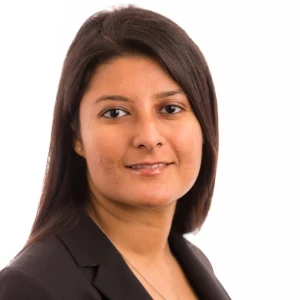I've noticed that I often get serious math nerves during case interview situations. The qualitative part comes easy for me, but I always mess up on the quantitative part. It's usually silly mistakes like 90% = .09, or 1*2 = 3... sigh... Does anyone else experience this? How have you dealth with this in the past?...
Math Nerves During Interview


You need to practice!
Regarding Improving Fast Math Skills
- Online "Drills": https://www.jetpunk.com/quizzes/fast-math-multiplication-quiz
- Math sheets (print these and do them on paper): https://www.math-drills.com/
- Leverage the free preplounge resource:https://www.preplounge.com/en/mental-math.php
- Rocketblocks is great for math in the context of a case:https://www.rocketblocks.me/
Regarding Improving Axienty
1) Practice, practice, practice - just like playing an instrument, practice until it becomes second nature...then when you perform in front of an audience, muscle memory takes over from stage fright!
2) Practice with people who make you nervous - Don't keep casing yourself or casing with other PrepLoungers! You need to feel as nervous when practicing as you will in the real thing. To do so, you can do any (or all) of the following:
- Ask for a buddy/case partner from target firms to which you're applying
- Ask anyone you have a relationship with at your target firms to give you a practice case
- Ask your school's career office to give you a case
- Ask a coach to give you a case (and ask them to be tough/strict/non-friendly)
- Still ask PrepLoungers to case you, but ask them to jump straight into it without conversation beforehand (i.e. simulate the real thing)
- Change your enviroment - instead of casing at home, go to a library or office room. Changing the scenery may trigger you to be less relaxed
3) Practice with the unknown - ask people to give you "weird" cases. Ask people to throw everything they have at you (curveballs, confusing statements, etc.)...you'll get comfortable with tripping up (and recovering)
4) Practice fast math - You said you get nervous here...well, practice it until it's the easiest thing you've ever done! How? Use the following:
- Online "Drills": https://www.jetpunk.com/quizzes/fast-math-multiplication-quiz
- Math sheets (print these and do them on paper): https://www.math-drills.com/
- https://www.rocketblocks.me/
Mental Math Q&A: https://www.preplounge.com/en/consulting-forum/is-quick-mental-math-a-skill-that-can-be-learned-5210
https://www.preplounge.com/en/consulting-forum/mental-math-help-7962
Interview Anxiety: https://www.preplounge.com/en/consulting-forum/tips-on-interview-anxiety-7095


Hey there,
Ken had some excellent points in his answer. The calculation is just one part of a math question in the McKinsey interview.
Before that, you need to:
- Discuss the objective and numbers with the interviewer
- Layout an approach on how you want to calculate and discuss with the interviewer
After the feared calculations you need to
- Communicate your answer top-down
- Discuss implications for the client in the context of the case
In addition, throughout all of this, the interviewer will take note of your structure, communication, the creativity of approach, maturity, etc.
There is so much more to math in cases than calculating a few large numbers. Focusing on this extensively is almost always a self-fulfilling prophecy for candidates who throw in the towel as soon as the interviewer hands out some numbers...
That being said, there is no excuse for not performing math drills for hours every day if that is a key weakness for you. Build that math muscle vigorously.
All the best (from someone who also f*cked up math during their actual McK interviews and still got in...)
Florian

Hello!
I totally hear you, and this happens to many people -furthermore, it´s easy to see it as an interviewer-.
Interview math, unfortunately, only gets better with practicing. Good news is that there are many ways of doing so!
I would recommend you, for instance, practicing iwth GMAT. There are free exams in the internet that you can use for practice (the one of LBS MBA page, Verits prep, as well as some free trials for courses such as the one of The Economist (https://gmat.economist.com/)
Hope it helps!
Cheers,
Clara

Comfort with numbers comes from familiarity and confidence which is best gained through practice I'm afraid. Through focused practice, you will also find practical tricks that help you avoid silly mistakes too.
The other thing is a change in mindset where math is often more of a hygiene factor than an important differentiator when interviewers are deciding on whether to extend an offer or not. For McKinsey, the "math" section is not just about the arithmetics but how you structure a quantitative problem, how you define and clarify on the key pieces of information, how you find shortcuts to solve a numericla problem, how you pull out insights from exhibits, how you draw out key implications from the "answer" you have calculated, etc. etc.
Good luck!

Hello there,
I just added an article about the challenge that math poses for many candidates, feel free to check it.
Case Math Without Tears: How to Build Real Math Confidence
Best,
Mari















